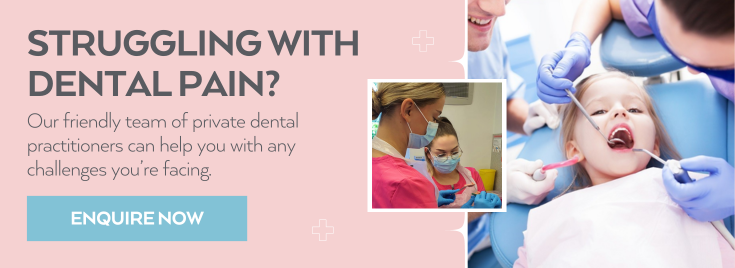Nail biting – known medically as onychophagia – is a common habit that an estimated 30 percent of people can’t kick, often because they don’t realise the serious harm they may be doing to their oral health. That’s why registering with a private dental practice can be a cost-effective way to ensure that, nail biting or not, you have a smile of which you can be proud for many years to come.
In this article, we’ll explain what biting does to your teeth and maybe dissuade you from continuing this habit!
The Effects Of Nail Biting On Teeth: Explained
So, can biting your nails damage your teeth? Absolutely, in the following ways:
Damage To Incisors
One of the most prominent risks of nail biting is the stress it places on your incisors, the upper and lower front teeth that are crucial for biting into hard food. Repeated pressure can lead to chips or cracks in your teeth and weaken the protective enamel, making them more vulnerable to damage and decay which will require restorative work. If you already have fillings in your incisors, biting your nails can cause these to become dislodged, resulting in a visit to the dentist to have them replaced.
Bacterial Transfer
Our hands and nails come into contact with various surfaces throughout the day, some of which may be harbouring bacteria, so it’s unsurprising that fingernails can be a sanctuary for some harmful microorganisms, including Staphylococcus aureus, salmonella, and E.coli. If you bite your nails, bacteria can be easily transferred to your mouth which, if ingested, can cause unpleasant illness. The bacteria that lurk under fingernails can also affect your oral health, causing gum disease and tooth decay.
Tooth Misalignment
Nail biting can contribute to tooth misalignment (malocclusion), particularly in children and adolescents whose jaws and teeth are still developing. The pressure from nail biting can disrupt the natural alignment of teeth, leading to orthodontic issues that may require corrective, and potentially expensive, treatment.
Weakening Of Oral Structures
Nail biting doesn’t just affect the appearance of your teeth: it can also weaken the underlying oral structures in your mouth. For example, the constant pressure can damage the roots, increasing tooth mobility. In severe cases, this may result in tooth loss, which will have a significant impact on your oral health, smile, and confidence, and will require extensive treatment to correct.
Bruxism And TMJ disorders
Studies demonstrate a strong association between nail biting and bruxism, which is the grinding or clenching of teeth. As well as causing premature tooth wear, bruxism also increases the risk of tooth breakage. The repetitive motion of nail biting can also contribute to temporomandibular joint disorders (TMJ), causing jaw pain, headaches, and other unpleasant symptoms.
Protect Your Smile With New Road Dental Practice
If you can’t beat the nail biting habit, you’re putting your teeth at risk of long-term damage. Contact us today to register as a private patient with New Road Dental Practice and book your first appointment with our caring team.
Image Source: Canva



